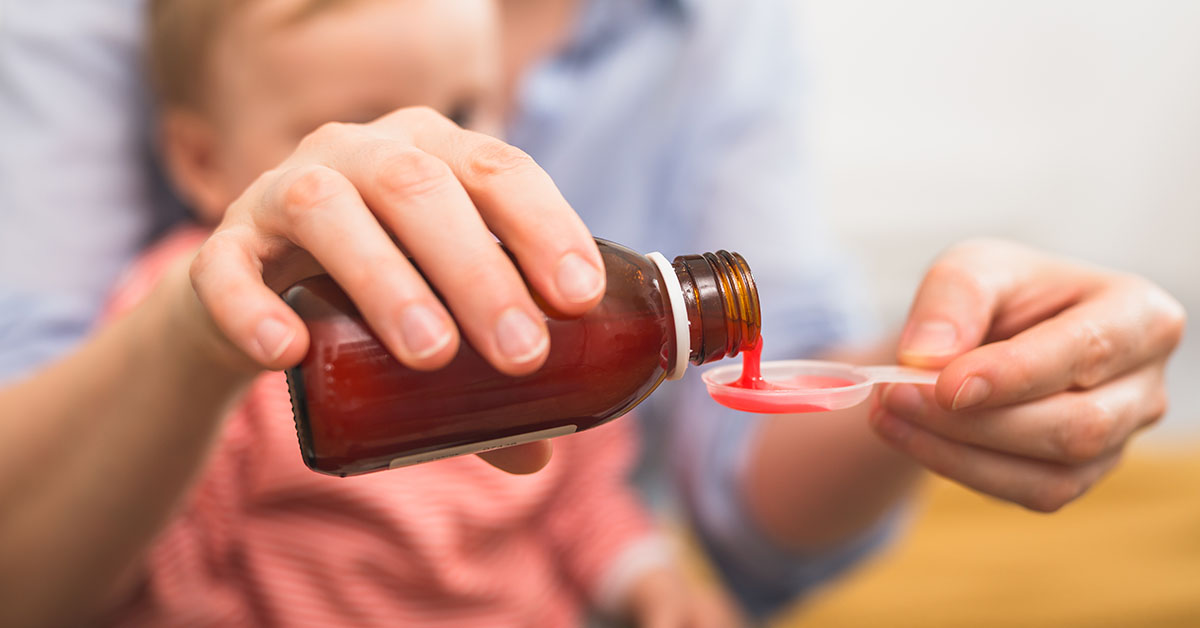 Kernodle Clinic - A DukeMedicine PRACTICE
Kernodle Clinic - A DukeMedicine PRACTICE
- Burlington 336-538-1234
- Mebane 919-563-2500
- Elon Family 336-538-2314
- Elon Pediatrics 336-538-2416
11 Commonly Prescribed Pediatric Medications

Even if you follow all the guidelines for preventing illness, your child is inevitably going to get sick sometimes. When that happens, the pediatrician may prescribe pediatric medications to help them recover. But with so many drugs with long and complicated names available, you may not know what your child is taking and why.
Your child’s pediatrician can always answer any questions you have about what they are prescribing and they should be your main source of information for anything regarding your child’s health. However, you can get an idea of what your child might be given by taking a look at this list of commonly prescribed pediatric medications.
1. Amoxicillin
Amoxicillin is at the top of the list of most commonly prescribed pediatric medications. It is an antibiotic that is inexpensive and well-tolerated by most children. It’s available by the brand name Amoxil, but there are many generic options that are less expensive. This medication is given orally. Young children usually take it in liquid form and older children and adults take it in tablet or capsule form. It is used to treat:
- Strep throat
- Ear infections
- Sinus infections
- Childhood pneumonia
2. Amoxicillin/Clavulanic Acid
Known by the brand name Augmentin, this medication combines the antibiotic amoxicillin with potassium clavulanate. Potassium clavulanate is a type of enzyme that helps the antibiotic fight bacteria that might be resistant to antibiotics alone. It is used to treat the same illnesses as amoxicillin alone, but may also be prescribed to kill bacteria in infected bites and infections of the mouth.
3. Albuterol
Albuterol is a type of drug called a bronchodilator. These drugs are used to treat respiratory issues by widening the air passages of the lungs (bronchi). It is commonly prescribed to relieve the symptoms of asthma. It is often administered by a metered-dose inhaler or in a nebulizer. It is also available as a syrup, but this form of the medication is not used very often anymore.
4. Cephalexin
Like many commonly prescribed pediatric medications, cephalexin is an antibiotic. It is sold under the brand name Keflex and is also available as a generic. It can be taken in a capsule, tablet, or oral suspension to treat things like ear infections, respiratory infections, urinary tract infections, and skin infections like impetigo.
5. Azithromycin
Like many commonly prescribed pediatric medications, azithromycin is an antibiotic. It is sold under the brand name Zithromax but is also available as a generic medication. It is usually prescribed for ear infections. It is available as a tablet, in an oral suspension (liquid), and in eye drops.
6. Fluticasone
Fluticasone is a steroid that is used in many different medications. Depending on what it is combined with, it can be prescribed as a nasal spray, cream, and ointment. It can be used to treat asthma, eczema, and allergies.
7. Ibuprofen
Ibuprofen is an NSAID (nonsteroidal anti-inflammatory drug) that is used to treat fevers, pain, and inflammation. You probably already have children’s strength ibuprofen in your medicine cabinet. It is available over the counter as Children’s Motrin or Advil. However, it is also available in prescription strength for certain conditions.
8. Cefdinir
Sold by the brand name Omnicef, this antibiotic is used to treat sinus infections, ear infections, and pneumonia. It is not usually the first type of antibiotic pediatricians will prescribe for these conditions. It is more expensive than some more common antibiotics.
9. Montelukast Sodium/Singulair
Singulair is used to treat asthma and relieve symptoms of seasonal allergies. It is a type of drug called a leukotriene inhibitor. These medications are used to prevent or lessen the body’s reaction to allergens. It is commonly referred to as Singulair even though it is available as a generic drug.
10. Prednisone
Prednisone is a type of corticosteroid. Corticosteroids are a class of drug that reduces inflammation in the body. Prednisone is used to treat asthma flare-ups, croup, and allergic reactions to things like poison ivy. It is usually prescribed for a short period of time in small dosages.
11. Nystatin
Nystatin is an anti-fungal medication that treats infections caused by fungi such as yeast. It can be given by mouth to treat infections in the mouth such as thrush. It also comes topical forms like creams, ointments, and powders to treat skin conditions like diaper rashes.
The team at Kernodle Pediatrics is dedicated to keeping your child happy and healthy from birth to age 18. Our pediatric services range from routine preventative care to treating acute illnesses. If you have questions or concerns about any pediatric medications your child is taking, call us at (336) 538-2416 to make an appointment.
